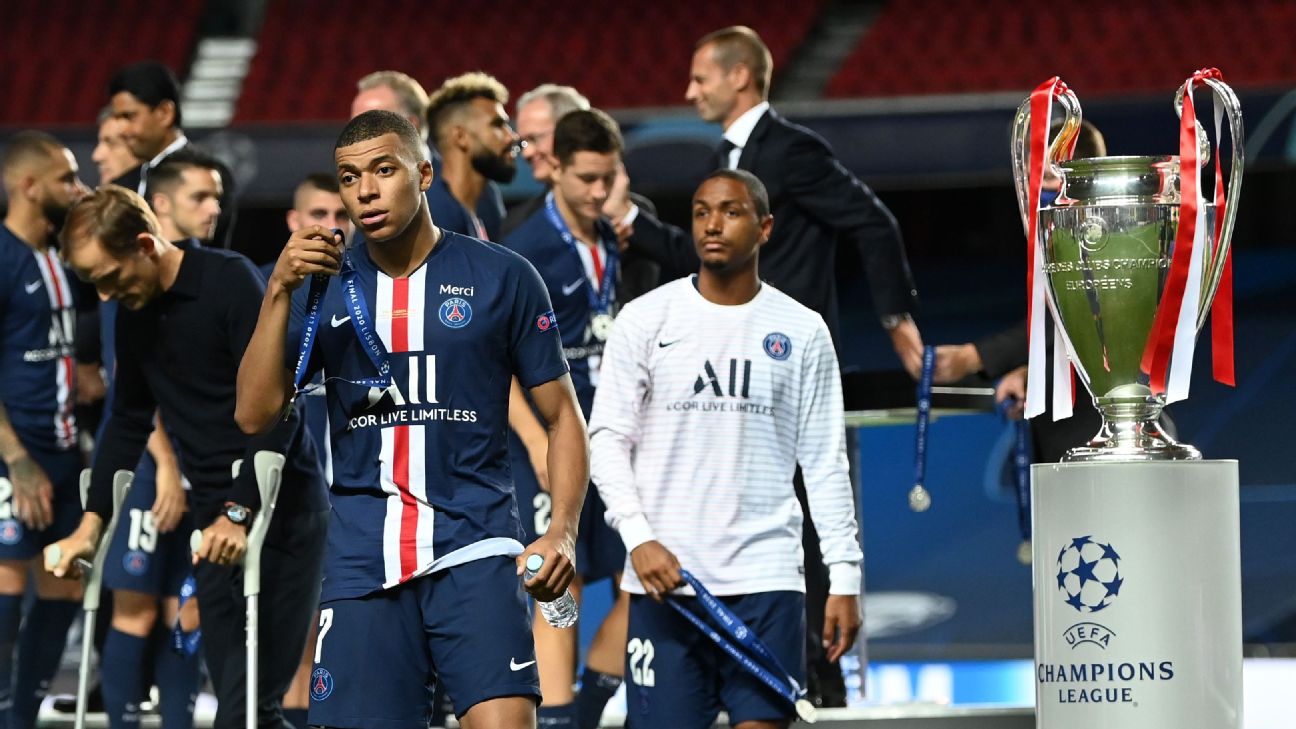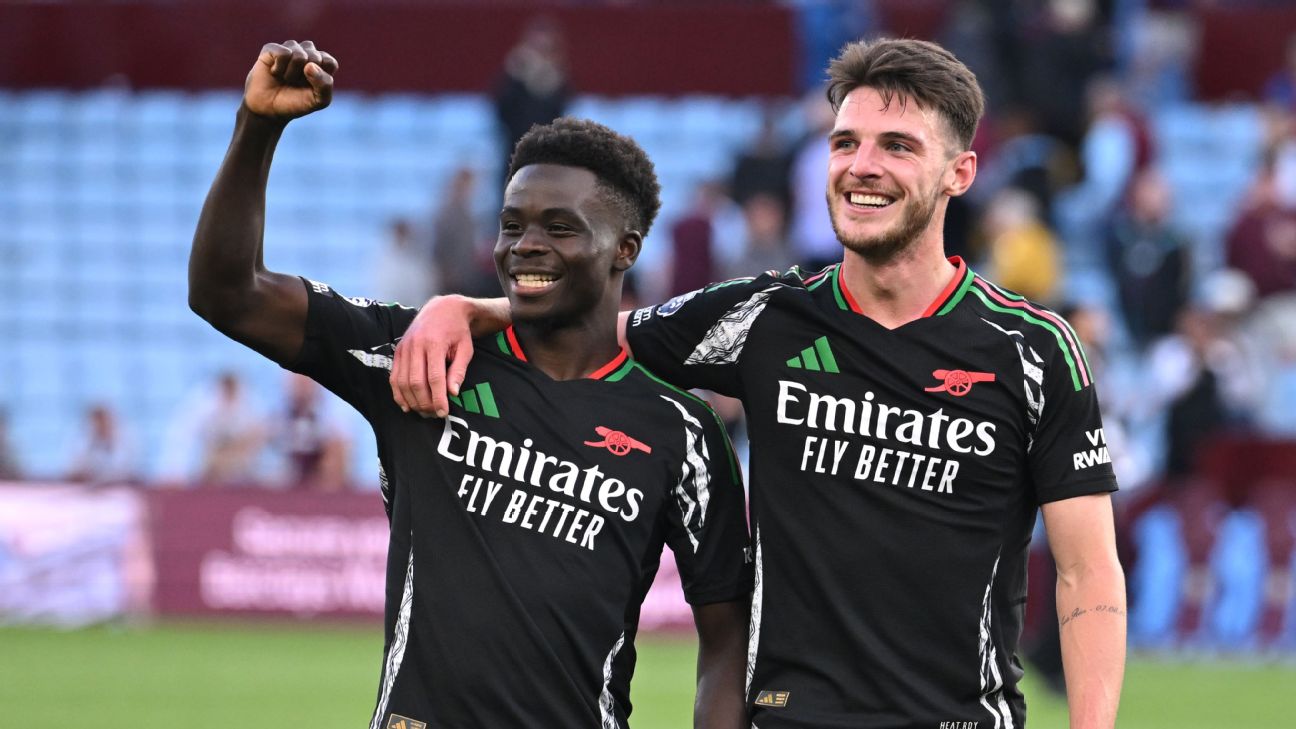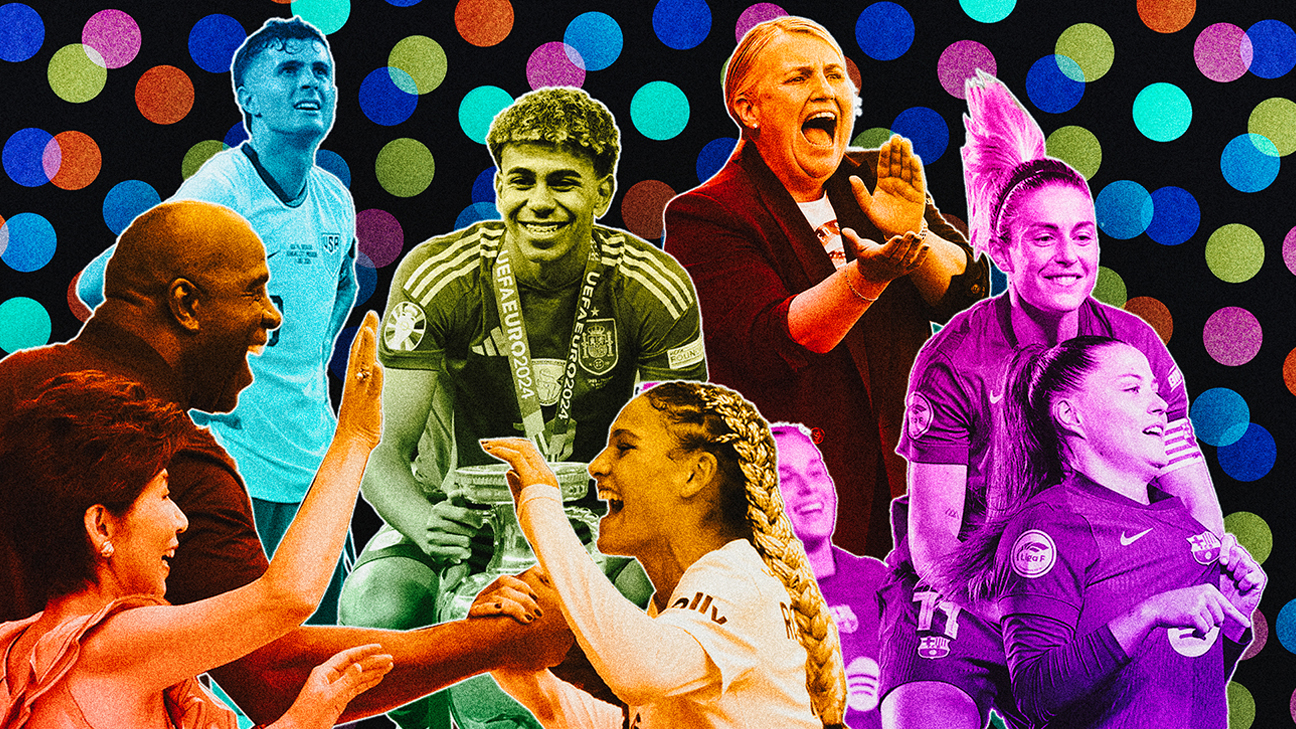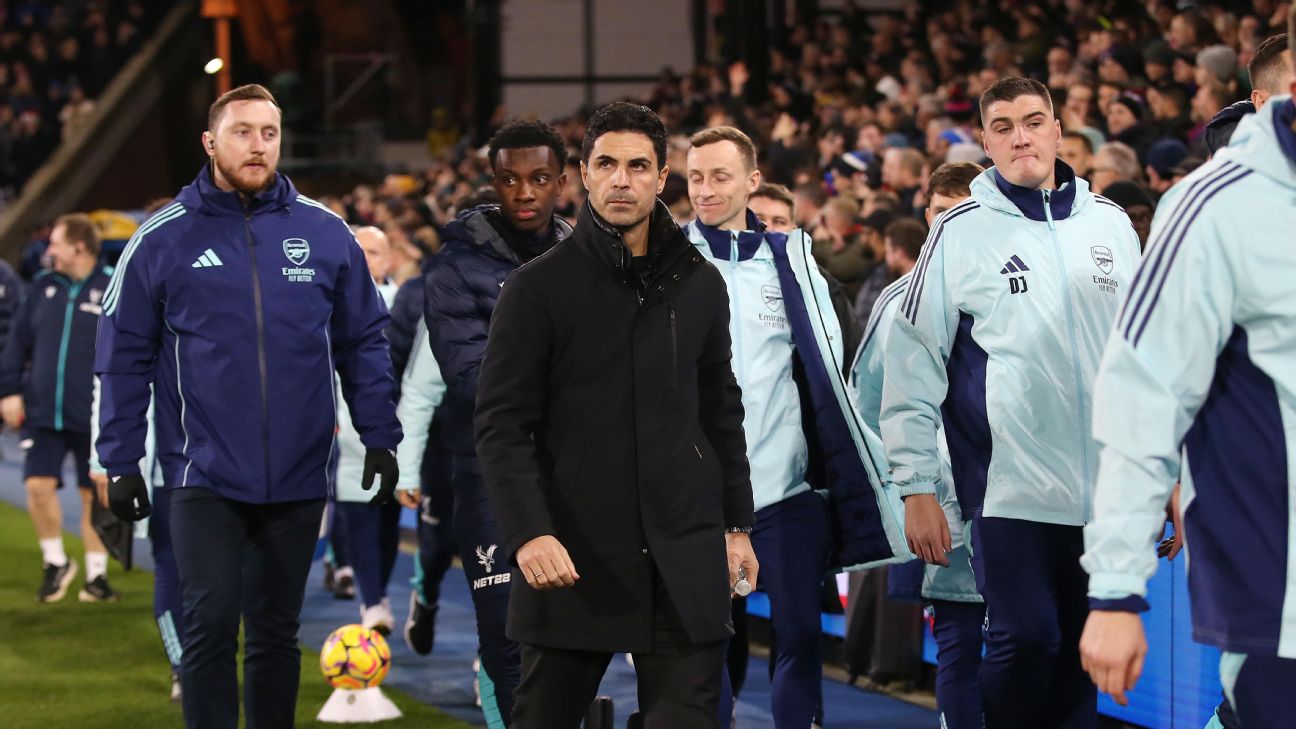Last week, Mohammed bin Salman, the Crown Prince of Saudi Arabia, did all of us journalists a solid by just admitting that the act of a sovereign government owning a professional soccer team was, in fact, sportswashing. It’s always been sportswashing, but now there is no doubt.
“If sportswashing [is] going to increase my GDP [gross domestic product] by way of 1%, then I will continue doing sportswashing,” he said. “I don’t care.”
On Wednesday, one of MBS’ sportswashing projects, Newcastle United, will host one of Qatar’s sportswashing projects, Paris Saint-Germain, in their first home Champions League game in 20 years. While the aims of both projects aren’t specifically aligned — Qatar and Saudi Arabia want different things — the soccer clubs themselves have no real contemporaries other than themselves.
The only other sovereign-wealth-funded club, Manchester City, has already conquered the sport. And the other richest clubs in the world — Real Madrid, Manchester United, Bayern Munich, Liverpool, and so on — all have some kind of desire to turn a profit, increase revenue, see their valuations increase, or at least vaguely gesture at the idea of “being a business.”
PSG and Newcastle, meanwhile, don’t need to produce revenue for their owners or increase their valuations so they can one day be sold by their owners at a profit. They only need to increase revenue so they can spend more of their comparatively unlimited money within the structures of UEFA’s financial fair play regulations.
When your only real goal is to spend as much money as possible to create the best soccer team possible, what do you do? Newcastle and PSG might want to try to be more like each other.
How PSG spent big and failed
From a branding perspective, PSG has succeeded in a way that I don’t think Newcastle ever will or can. You get Kylian Mbappé, Neymar and Lionel Messi on the same team, playing in Paris, wearing the sport’s only Jordan-brand uniforms, and you’ve done something right. Kids all across the world are becoming PSG fans because their players are cool and their uniforms are special, and they’re really fun to use when you’re playing the video game formerly known as “FIFA.”
While I do think that the video game version of soccer and the real-life version of soccer have converged — constant running, chasing after the ball, playing vertical passes, then rising and repeating — PSG, ironically, built the wrong kind of video-game team.
Mbappe, Neymar, and Messi provided no defensive resistance from the front. For that to work, PSG needed a bunch of other workmanlike players to cover up their off-ball deficiencies. Instead, the rest of the team was filled with other “not-quite-as-super” stars. They’d truck the French league through sheer force of finances and talent, but it never held up against the constant pressure of the Champions League knockouts.
The only year it really worked was the pandemic-delayed 2020 season, when they made a run to the Champions League final. They could’ve won that match — a 1-0 loss to Bayern Munich — and it featured a truly un-PSG lineup.
The full-backs were the unspectacular duo of Thilo Kehrer and Juan Bernat, while the midfield featured a center-back in Marquinhos, a destroyer in Ander Herrera, and a relatively immobile passer in Leandro Paredes. And up top, Ángel Di María’s constant running supported the lack of it from Neymar and Mbappe. These players combined for a much lower average “FIFA” rating than almost any other team of the Qatari era at PSG, and yet it was also their most competitive side in European competition.
And Europe, really, is all PSG cares about. In fact, Qatari Sports Investment, the nominal owners of the club, said as much on their currently-being-redesigned website: “Before changing stratosphere in 2011, with the arrival of new owners, Qatar Sports Investments and chairman and CEO Nasser Al-Khelaifi. They established an extremely ambitious project, a project that has one aim: to take Paris Saint-Germain to the summits of the European game, having already transformed Les Rouge et Bleu into the most successful French club in history.”
An algorithm or a 14-year-old with an internet connection could have transformed PSG into the most successful club in French history with the money of Qatar behind it. But outside of a near-ascent in 2020, PSG haven’t really come close to reaching the summit of the European game. They’ve only made it past the quarterfinals one other time since 2011.
How Newcastle might spend big and fail
While Qatar took over a stable club in a massive city and immediately started winning domestic trophies in France, it was a totally different proposition to what the Public Investment Fund (PIF) of Saudi Arabia encountered in the northeast of England. When the PIF took over Newcastle in the middle of the 2021-22 season, they were entering into a league that already featured six of the 10 or so richest clubs in the world. Not only that, but the team itself was awful.
Around the time of the takeover, Newcastle had the worst per-game Expected Goal (xG) differential of any team in Europe’s Big Five leagues. According to the best indicator of team quality we have, Newcastle were the worst team in England — and possible in all of Europe. Per the now-defunct FiveThirtyEight rating system, the Magpies had just a 25% chance of staying up as of mid-January 2022.
So, the club couldn’t just overpay to sign a bunch of superstars for a couple of reasons:
-
No superstar was willing to move to Newcastle to play for a potentially relegated team.
-
The club couldn’t really afford to take the risks associated with such big-money moves because if they didn’t work out, the club would have dropped down to the Championship.
Instead, they just made a bunch of seemingly-marginal-but-actually-quite-sizable upgrades all across the roster.
In Kieran Trippier and Bruno Guimarães, they brought in two Champions League-level players to slot in for a team with mostly relegation-level players. Then, the other two signings were Matt Targett and Dan Burn, average-ish Premier League defenders who, again, proved to be massive upgrades on the relegation-level players they came in to replace. All of that — plus some savvy managerial tinkering from new manager Eddie Howe — saw Newcastle rocket up the table and ultimately finish in 11th place.
Off the field, last year was more of the same slow build. For potential Champions League-level talent, they looked to striker Alexander Isak from Real Sociedad and center-back Sven Botman. To build out the cache of Premier League-level players, they also acquired goalkeeper Nick Pope and winger Anthony Gordon. Shockingly, they finished fourth, with the second-best xG differential in the league.
Last season at least seemed a little fluky. They were more reliant on a small core of players than any other top team in the Premier League. And did these players — Miguel Almirón, Joelinton, Callum Wilson, Fabian Schar — really comprise one of the best teams in the Premier League and therefore the entire world?
A simple way to look at Newcastle’s first year and half is that, well, it’s really easy to upgrade the worst team in the Premier League when you have the richest owners in professional sports. Transfers have a shockingly high fail rate — club-record transfers only play about half of the available minutes for their new team — but there’s a massive margin for error with Newcastle when they’re just trying to find players who will be better than the players who were producing league-worst performance. Offer a big-enough pay raise and you can convince some decent players to come join the relegation battle.
They’ve arrived in the Champions League way ahead of schedule, though. It bears repeating: this team was a heavy favorite to be relegated from the Premier League less than 24 months ago. Finding players who are good enough to win a relegation fight is a much different proposition than figuring out which ones might help you win one of the major trophies.
Newcastle and PSG can learn from each other
On the aggregate, Howe’s Newcastle have been quite good again this season.
This chart plots every team in the Premier League by their per-90 non-penalty xG differential (with minutes played up or down a man removed) and the difficulty of their schedule as measured by the average Stats Perform power rating of all of their opponents. It’s not perfect, but it’s a general display of how well each team has played so far and how difficult their matches have been:
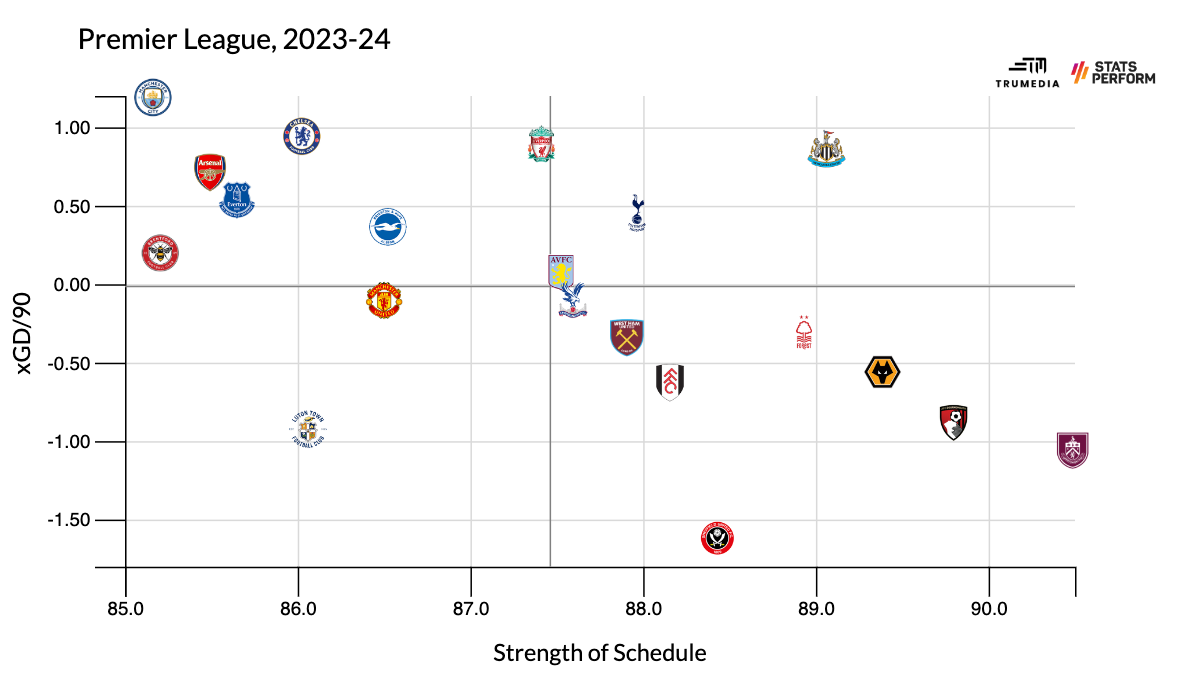
Even if you remove their 70-ish minutes of man-up play against Liverpool, Newcastle still look like one of the best teams in the league. And that’s despite so far playing one of the harder schedules in the competition, including the aforementioned Liverpool game, Manchester City, Brighton, and Aston Villa.
Of course, we can’t ignore their worst performance of the season, which was the scoreless draw at the San Siro against an AC Milan team that was just a few days off of a 5-1 loss to Inter Milan:
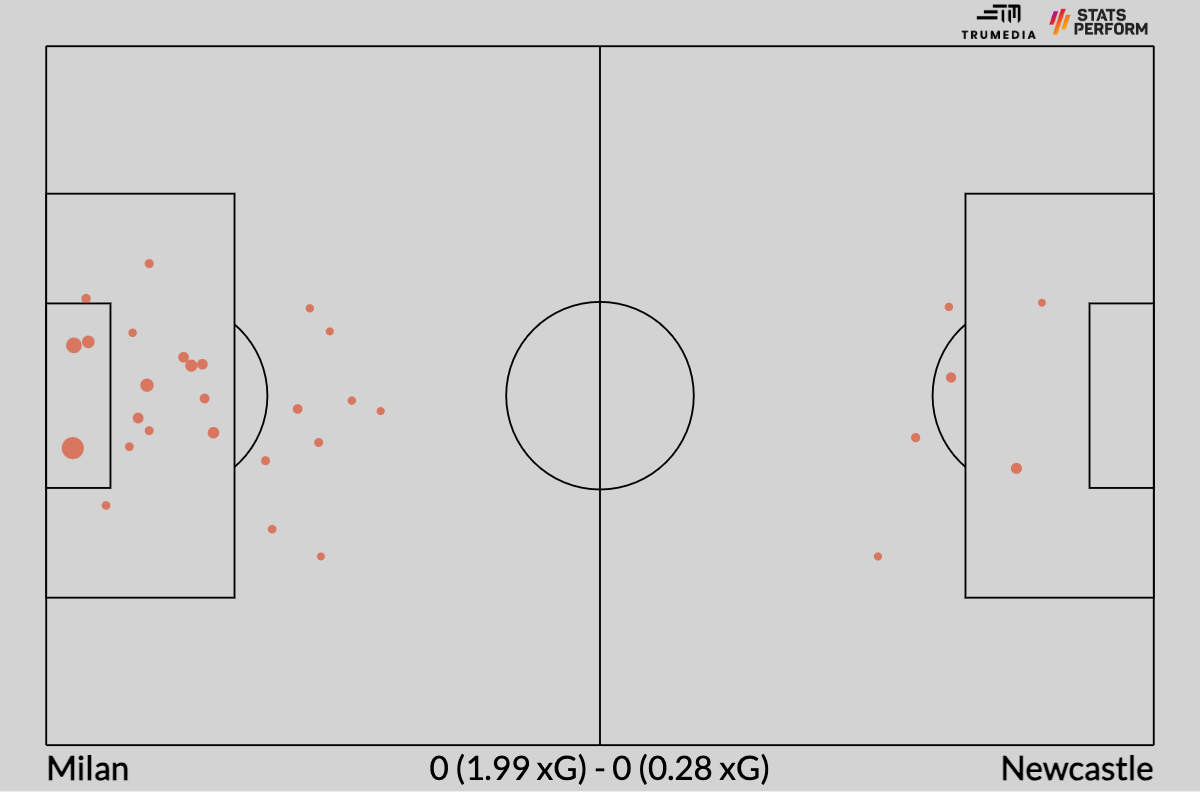
Newcastle were outshot 25-6 and really were incredibly fortunate not to lose by multiple goals. The Liverpool loss was also poor — they created enough chances to win that game but they really didn’t capitalize on their man advantage. They couldn’t create anything at home against Manchester City, and Brighton’s up-tempo possession game ripped them apart at times.
The challenge for Newcastle now is to find a way to stay near the top. That means figuring out ways to win all kinds of matches: when it’s a transition battle, when you’re forced to defend deep, when you have to break down a settled defense. Broadly, the best teams are the best teams because they have players who can create advantages in all of these situations.
Last season, Newcastle produced that second-best xG differential despite having only 52.7% possession on average — the eighth highest rate in the league. They played one way and were great at it.
With tons of money and Champions League football on offer, Newcastle entered this summer looking like they would add a couple true stars to the solid foundation they’d suddenly built. Instead, they brought in a couple young full-backs for the future — Tino Livramento and Lewis Hall — and a pair of squad-depth pieces in Harvey Barnes and Sandro Tonali. (I’m sure some will take issue with Tonali as a depth player, but at this point in his career, he’s developed into a solid midfielder, nothing more.)
Beyond Tonali and increased roles for Isak and Gordon, Newcastle are mostly rolling with the same team from last season. Who knows how the sudden spending of Saudi Pro League teams affected what Newcastle was able to do this summer, but it surprised me that they didn’t at least bring in a few proven stars in order to continue the club’s progression or solidify their gains toward the top of the table. Before the season and also before the end of the transfer window, I wrote: “Among this squad, how many of these players would walk into the starting lineup at another top Champions League club? Outside of Bruno Guimaraes and probably Trippier and maybe Botman, there’s not really anyone else.”
To consistently win games at the top of the Premier League and the Champions League, you need star-level talents, and it’s still unclear how many of those Newcastle have. But they certainly do have plenty of the kind of players that PSG have recently lacked: the solid squad players who provide the platform for the guys who can win the games on their own.
To their credit, PSG realized this — more than 10 years on. Neymar, Messi, Marco Verratti, and Sergio Ramos all left this summer. Half of PSG’s 10 most-used outfield players are new, and most of them fit the non-star model: Milan Skriniar, Lucas Hernández, Manuel Ugarte, Goncalo Ramos, and Ousmane Dembélé. The first three mainly contribute via their defensive solidity, while Goncalo Ramos is the kind of traditional-ish striker who Mbappe has said he likes to play off in the past.
Dembele might seem like a “luxury player” with how often he gets hurt, but when he’s healthy he really is an easy-to-plug-in winning player who makes his teammates better. He stretches the defense with his speed but then can also do plenty of damage by receiving the ball deeper and progressing it up field. Dembele just creates so much space for everyone else both with and without the ball.
My concern for PSG, if anything, would be that they’ve moved too far from the star model of the past. As of now, Mbappe is the only player on the roster who we’ve seen consistently score and create goals at the highest level.
It’s absurd that we’ve come to this, but there’s something almost morbidly fascinating about watching two clubs with unlimited money try to build a balanced soccer team. Luckily for everyone else, neither one seems to have figured it out — yet. On Wednesday, the answer might be staring them both right in the face.
